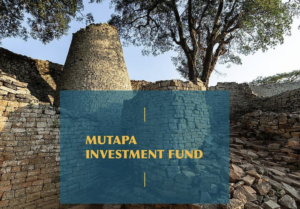CAN A ROGUE REGIME APPOINT A SAVIOR MINISTER?

In the intricate web of political machinations and crises, a question looms large over the fate of a nation crippled by the grips of a regime mired in controversy and scandal. This regime, born out of a military coup and accused of rigging elections, stands as a testament to a tragedy unrivaled in the country’s history. It’s a quasi-military edifice, commanding through authoritarian means rather than consensus, branded as a criminal enterprise focused on self-enrichment at the expense of national welfare. Amidst this turmoil, the critical inquiry arises: Can such an administration, fraught with illegitimacy and incompetence, appoint a Minister of Finance capable of salvaging the nation’s plummeting fortunes?
This question plagues the politically informed and enlightened, standing in stark contrast to the parochial and rural electorate. This demographic, dependent on the regime for mere survival, remains oblivious to the machinations of power and the bloated, militarized ministries that serve not the people, but the interests of a failing state apparatus. The electorate’s ignorance is not by choice but by circumstance, a product of a humanitarian crisis brewed in the cauldrons of political illegitimacy and state paralysis.
An illegitimate president, it’s argued, cannot fathom the appointment of a competent, professional Minister of Finance. Such a choice would pose a direct threat to the precarious balance of power, undermining the very foundations of the regime’s control. This control is maintained not through effective governance but through a network of politicized, militarized institutions, ranging from the security sector to the judiciary, all complicit in a grand scheme of state capture and plunder.
The crux of the argument rests on the notion that a competent minister would initiate economic reforms, potentially destabilizing the regime’s grip. This would involve curtailing illegal government spending aimed at buying loyalty and obstructing the widespread looting of the country’s finite, strategic resources. Such was the brief glimpse of hope during the short-lived government of national unity, where the opposition, against all odds, resurrected a faltering economy and stemmed the tide of regional instability.
However, the current narrative defies these expectations. The incumbent Minister of Finance, initially touted as a technocratic savior, is now contesting elections under the banner of the same regime that has been accused of constitutional mutilation and an unrelenting pursuit of self-enrichment. This development casts a long shadow over the initial portrayal of the minister as a meritorious appointee. It suggests a complicity in, or at least a submission to, the overarching agenda of the regime, characterized by state failure, rampant corruption, and a relentless drive towards an autocratic one-party state.
This paradoxical situation underscores a broader crisis in governance. It questions the very possibility of reform and renewal under a regime deeply entrenched in malfeasance and authoritarianism. The aspirations for a competent finance minister, capable of steering the nation away from the precipice of economic collapse and social unrest, seem increasingly distant. Instead, the trajectory remains alarmingly consistent with the patterns of the past – a trajectory that perpetuates stagnation, exacerbates suffering, and dims the beacon of hope for a prosperous, equitable future.
In the end, the plight of this nation becomes a mirror reflecting the broader challenges of governance in troubled times. It’s a cautionary tale of how the intertwining of illegitimacy, corruption, and authoritarianism can stifle the potential for meaningful change, leaving a populace in the throes of uncertainty and despair. The question, therefore, remains not just of a minister’s competence, but of the very nature of power and its ability to self-correct in the face of its own destructive tendencies.



